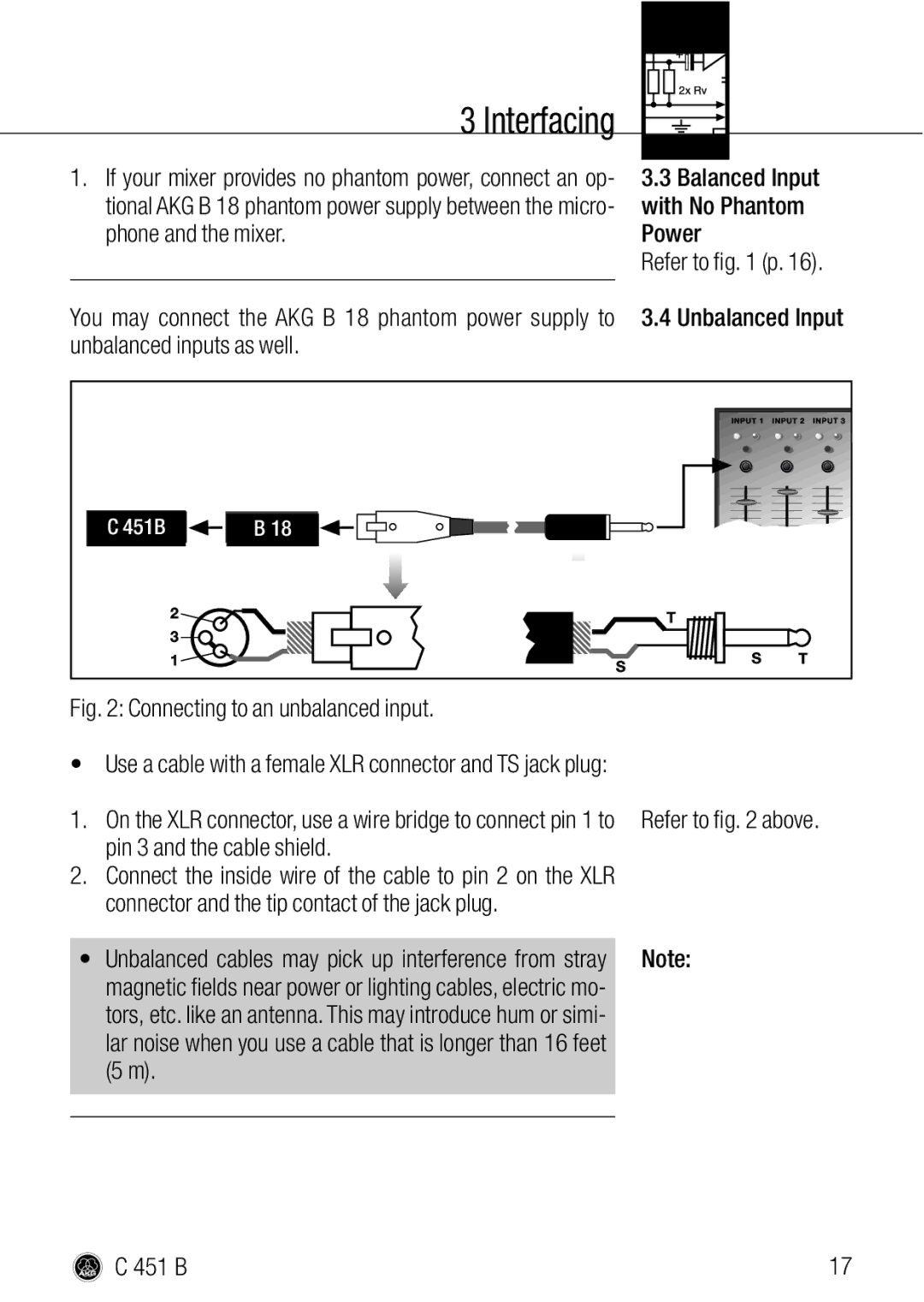
| 3 Interfacing |
|
|
|
|
|
|
|
| |
|
|
|
|
|
|
|
|
| ||
|
|
|
|
|
|
|
|
| ||
|
|
|
|
|
|
|
|
| ||
|
|
|
|
|
|
|
|
| ||
|
|
|
|
|
|
|
|
|
| |
| 1. If your mixer provides no phantom power, connect an op- | 3.3 Balanced Input | ||||||||
| tional AKG B 18 phantom power supply between the micro- | with No Phantom | ||||||||
| phone and the mixer. | Power | ||||||||
|
|
| Refer to fig. 1 (p. 16). | |||||||
| You may connect the AKG B 18 phantom power supply to | 3.4 Unbalanced Input | ||||||||
| unbalanced inputs as well. |
|
|
|
|
|
|
|
| |
C 451B | B 18 |
Fig. 2: Connecting to an unbalanced input.
• Use a cable with a female XLR connector and TS jack plug:
1. On the XLR connector, use a wire bridge to connect pin 1 to Refer to fig. 2 above. pin 3 and the cable shield.
2.Connect the inside wire of the cable to pin 2 on the XLR connector and the tip contact of the jack plug.
• Unbalanced cables may pick up interference from stray | Note: |
magnetic fields near power or lighting cables, electric mo- |
|
tors, etc. like an antenna. This may introduce hum or simi- |
|
lar noise when you use a cable that is longer than 16 feet |
|
(5 m). |
|
|
|
|
|
C 451 B | 17 |
